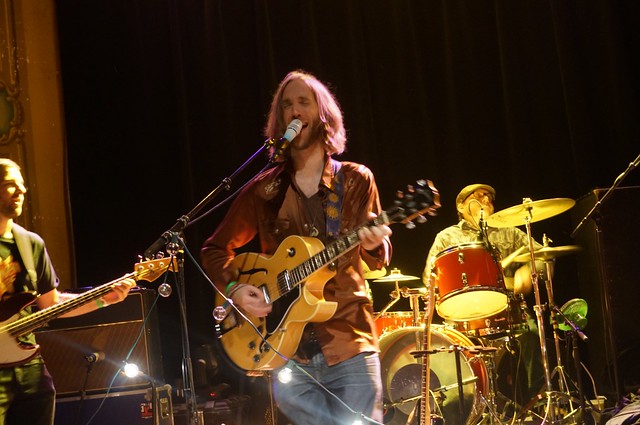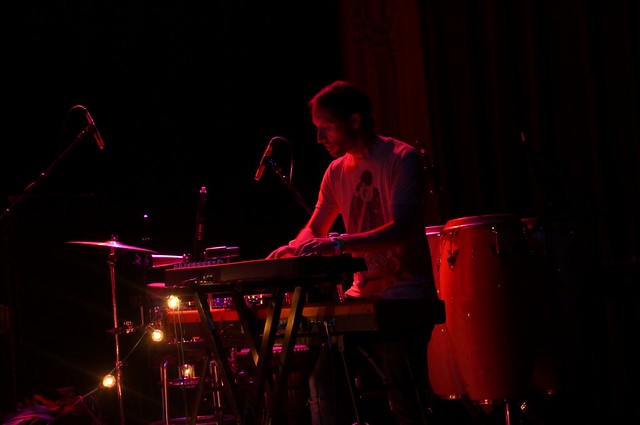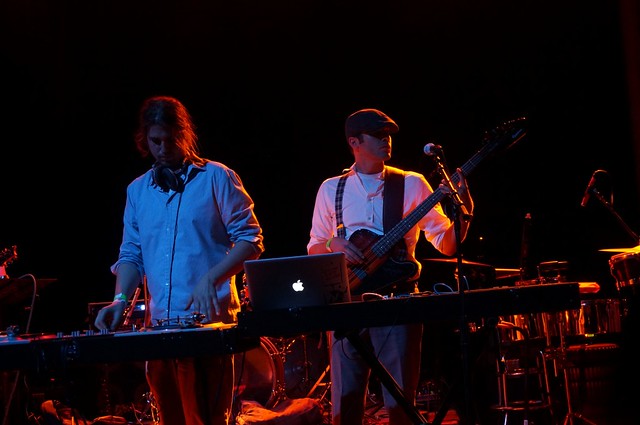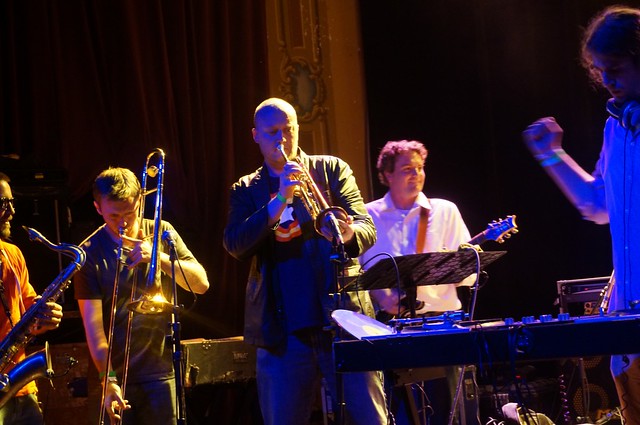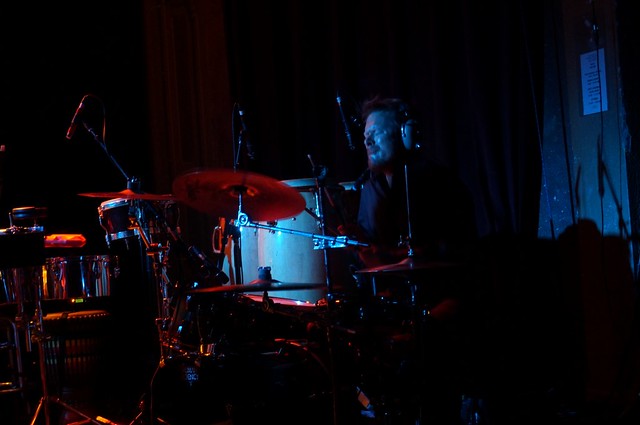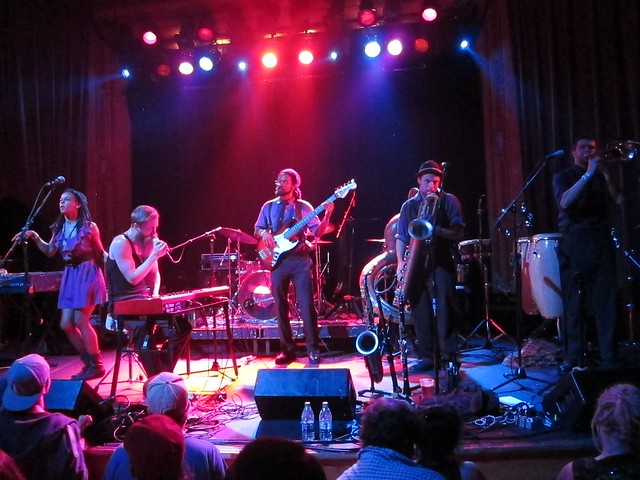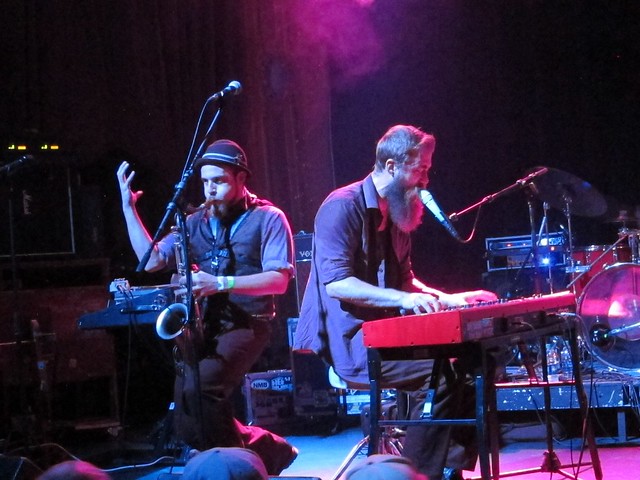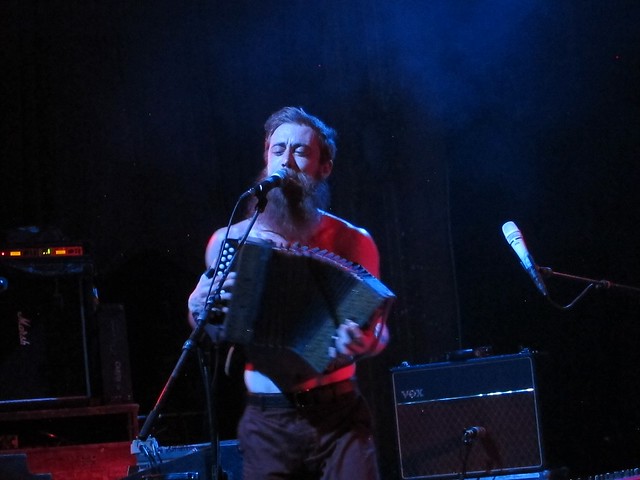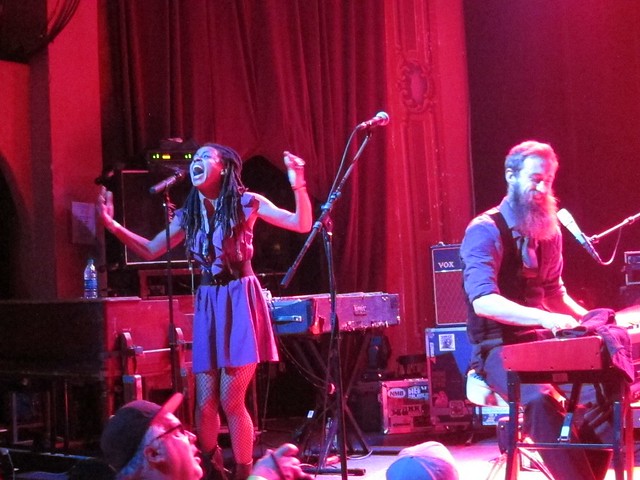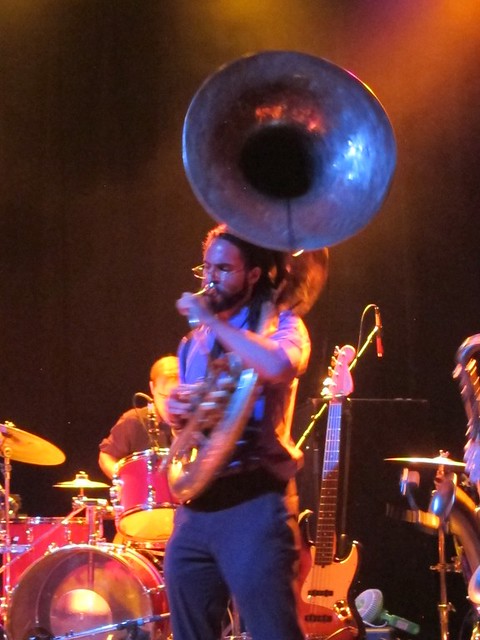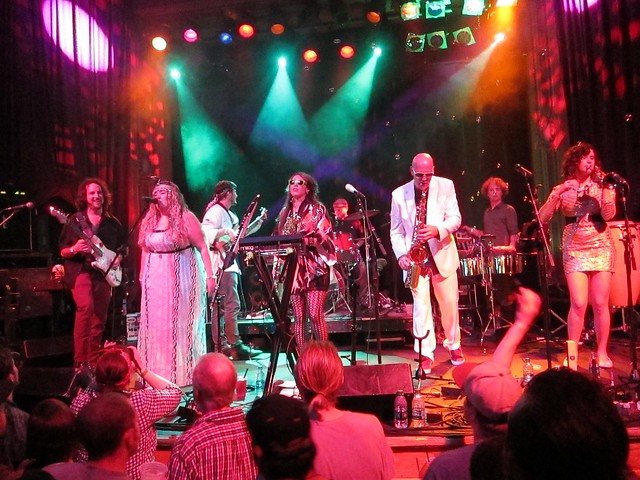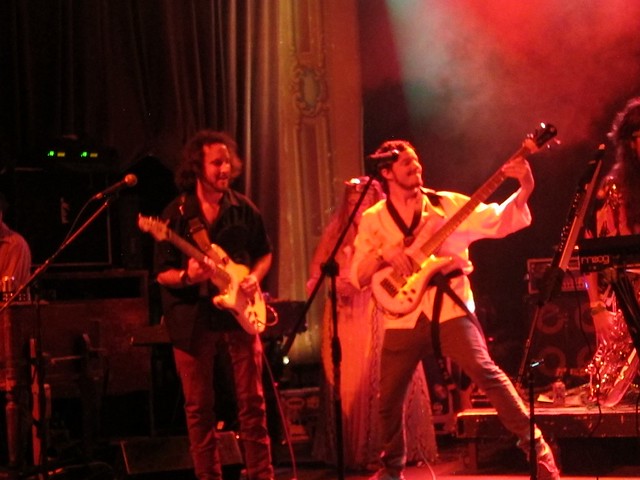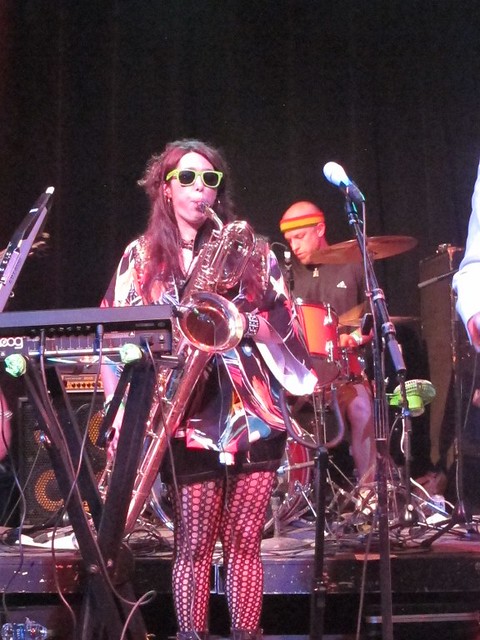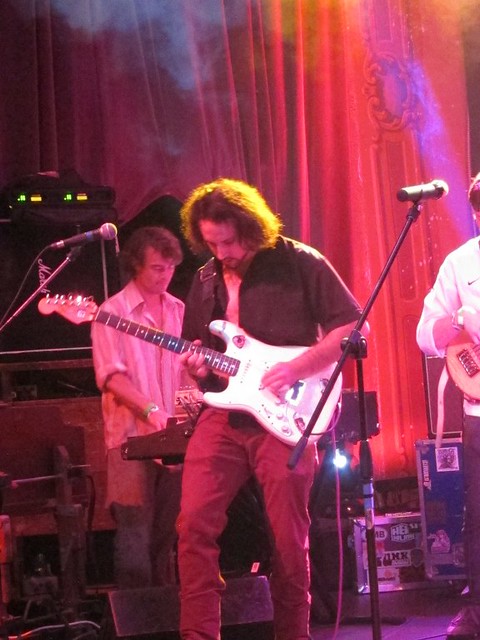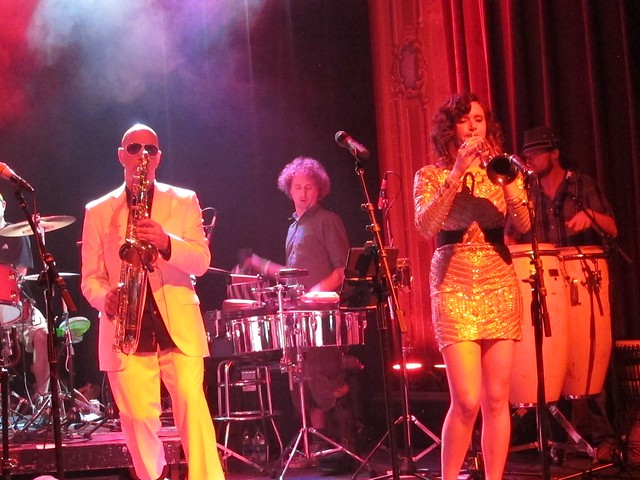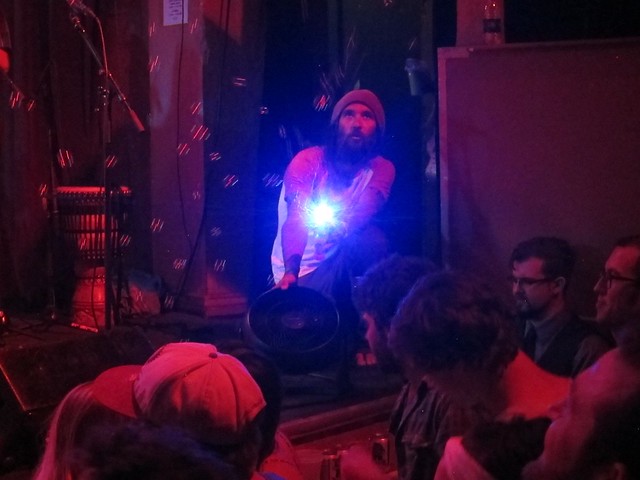A relative newcomer to the Front Range, singer/songwriter Pete Pidgeon moved here from the busy New York music scene. In the few months he’s been here, he’s fallen into the local music community and also made strong connections on the business side. Part of what makes him fit in so well here is his earnest, engaging nature and his open stylistic approach that includes pop, Americana, jazz, and even some funk.
I had the chance to talk with Pidgeon at DazzleJazz club in Denver, before we both enjoyed listening to his Arcoda bandmate, pianist Adam Bodine, lead his jazz combo through a solid set.
This is part one of our conversation, which has been condensed and lightly edited.

How would you define your music, if you had to do it?
Pete Pidgeon: I usually say songwriting because that’s really the core of it. If you listen to Bob Marley or Paul Simon, or if you listen to Whitesnake, all of those bands are songwriting. It’s based on form and a verse-chorus and lyrics and all that kind of thing as opposed to jazz or jam band, which are mostly instrumental.
If you took Billy Joel, for example, he’s got a genre of songwriting, but his style changes from tune to tune. So, he can do a doo-wop '50s song and then he can play a straight out pop tune, and he can do piano ballads. He has these different styles within his own genre. So when you think Billy Joel, you think Billy Joel. You don’t think he’s a reggae guy and then he’s a world music guy
I think we - we meaning the band and myself; I write the tunes -- we sort of fall into that category. There’s a genre for the band, which is the umbrella of songs. I may write a song in a reggae style or an R&B style, but the genre is based on this verse-chorus type of organization.
I do hear a lot of different influences in your music. I can hear some some Phish on a few things. I can even hear a little bit of Moxy Fruvous. Certainly I get what you’re saying about songwriting because you have that kind of singer/songwriter stage presence. Listening to your songs, you tap into that to either tell a story or create a mood.
PP: No matter what the style is that you’re conveying, you can still get a similar message across. If you listen to Tesla’s albums, like their Five Man Acoustical Jam record and you break that down, it’s straight ahead songs. You think of them as a hair metal band or whatever, but really, if you strip all that stuff away, it’s just song forms. And part of the genre aspect of that was hair metal '80’s, but stylistically, they’re pretty much a songwriting band. Whether it’s disco or pop. It makes it more fun and more flexible as a musician to be able to do different stuff and keep it interesting and not be limited.
With the kind of eclectic sound that you have, do you think that’s it harder or easier for you?
PP: I think it’s 50-50, but in the long run, it’s easier. Because, for example, we could open for Leon Russel or Bonnie Raitt and do a stripped down show. We could do a straight ahead rock show because of songs like “Will” and “Whirlwind” and “She’s Right”. We could play a folk situation, like Newport Folk Festival or something like that. I could play solo acoustic. I just did that “Wharf Rat” performance for JamBase, for the GD (Grateful Dead) 50 “Songs of Their Own” series.
I saw that on YouTube.
PP: So, it gives me all these opportunities to do different things with different people and different areas of the field rather than being limited. If we were only a folk band, we can only play in that little niche. I also have so many songs at this point. I probably have 120, or 130 tunes that are completely finished, recorded, polished and everything. Within that set of a hundred or so tunes, say we do thirty on a gig, that gives me almost four or five complete sets of music that we can play in these different venues. If we did a show at Dazzle, I’ve got a jazz instrumental set. If we did a show at Cervantes or at OneUp, we have enough jam band style material that we can make that show a success and get people off.
You said that it was 50-50, though. What’s the downside?
PP: The downside is probably just when you book shows or when you’re asked to define yourself in very limited circumstances, you have to come up with a thing. Like with ReverbNation: they ask you to come up with your genre. I think currently our genre is Americana. That’s what the new record is for the most part. So, if we’re focusing on what’s one thing we are right now, I have to come up with a response and coming up with that response is sometimes difficult if I don’t have a defined situation. I think Americana is what we’re doing in 2015 and where we’re headed with the new record and everything, so it’s a little bit of an easier answer, but if you had asked me three years ago…we’re rock. I guess, because there’s no songwriting genre. Coming up with that definitive answer can be difficult at times.
Talking about the different kinds of gigs you say you can do, though, doesn't it make it harder to have an identity that you fans can connect to? Your fans have to work a little bit to figure out what is it that makes you their thing.
PP: I think that’s what is so great about Denver that’s not really present in a lot of other areas of the country is that the fans here will go to an EDM show one night, the next night they’ll go to a country show, then they’ll go to a folk show, they’ll go to a rock show, They’re almost tuned into accepting the eclecticism of these bands. So, here we’ve been very successful. We can do different styles of music and people aren’t going to say, “Oh, this isn’t what I thought you were.” And they’re not only accepting of it, but they like seeing that diversity. It makes it an interesting show. We’re not going to come out and play the same show every time. It’s always a different setlist, depending on who’s on the bill or what room we’re playing in. I think that’s probably our biggest asset. Because if you’re a hard rock band and you end up playing a rockabilly club, you’re kind of in trouble. But if we play Little Bear in Evergreen, for example, we’ll play rockabilly for two sets and people will love it.
So, what brought you to Colorado? You’re pretty much an East Coast guy -- New York and Connecticut.
PP: Yeah, I was born in Connecticut and then I spent a few years in New Jersey at Mason Gross School of the Arts at Rutgers. Then I moved to New Paltz, NY, about an hour and a half north of Manhattan. It’s out in the woods. It was the hippie town of hippie towns in America when I was there, anyway, between ‘95 and 2000. I lived in a house called the cloud house, which was yellow when I lived there, but it used to have clouds and sky painted all over it like a Peter Max painting. It was like the San Francisco of the East Coast, but in very small, subtle town.
That’s where Arcoda started. I sort of made this band thing and tried to sort of congeal all of these ideas to one name and one direction. The lineup continually changed, but just having that idea of a band that’s a repository for all these songs that I’m writing. No matter who’s in the group, we’re going to do these songs and play out.
I graduated SUNY New Paltz with a Jazz Studies degree and then moved to Boston until the end of ‘07. That was a great time. From 2000 to ‘02, '03, there were a lot of great bands on the scene: The Slip, and Percy Hill, and Madison Project, and Uncle Sammy. There was this great vibe but then the dynamic of the town and the clubs changed and a lot of the bands broke up and the clubs started shutting down or being bought out by corporate companies and stuff. Then I moved to New York City, I lived in Brooklyn for three and a half years and that was great because it was the kick in the ass I wanted about just learning the hardcore business aspect of everything and getting to meet some of the big names and work with bigger people.
Unfortunately, the skyrocketing rent and ability to live in that town became impossible. So, I moved back home for a little while and back to Connecticut to sort of figure out what I was doing. I bounced between Millerton, NY and Canton, CT, and Boston for a couple of years, just trying to make some money and save up, figure out where I wanted to go. I did a lot of research. I had come to Denver in 1996 for the Phish concerts at Red Rocks. I thought it was amazing. It was just the coolest town and a great buzz. I knew I always wanted to get back here. Then I was the lighting director for The Slip in 2000 and we played the Gothic and the Fox on that run. Just incredible people, great vibe, great music scene. So, I knew some people out here. Eric Imbrosciano, who was one of the drummers in Arcoda back in the day, he ran the funk jam at the Armoury on Wednesdays. So, he brought me down there and introduced me to a bunch of people during the Phish concerts at Dick’s in 2014, Labor Day. So, I hung out here for a week and I loved it and I came out and it‘s been...It was the right move, it’s been amazing.
You mentioned the changing lineup for Arcoda. Did you come here alone and then build the current version?
PP: Right. The band I was playing with in North Hampton, Mass, they were some of the most talented young players in central Mass. Really, really good players and good people. The trouble was that there aren’t any paying gigs in central Mass. That whole scene is very difficult to get paid as a musician. We did a few gigs, but they weren’t paying much money, if any money, and they were getting a little frustrated that the bread wasn’t there, and I was getting frustrated because I was paying out of pocket and losing a whole bunch of money. So, I knew I had to get out of there and make a change and move. I just came out here and with Eric’s help, he introduced me a lot to the scene and I got my feet on the ground. Slowly but surely, I met all the musicians and found out the ones that would work.
I’ve seen you open for Atomga’s CD release party for Black Belt at the Bluebird [review] and then I saw your recent show headlining at the Fox [review]. I think you’re getting out and about well in the area. Does this feel like where you want to settle in for the duration?
PP: It blows my mind. A lot it has to do with the talent buyers here being human beings. Like Chris Peck and Jake Nixon for example, who do Z2 [Entertainment]. They had faith in the band and in myself. I’m not used to people either taking a chance or having faith in us. I have a great bio, of course, but in New York City, everyone has a great bio. So, I was used to this sort of brick wall mentality. Where I’m just beating this wall until my hands are bleeding. I’d say, “Look I’m good, I’m really good. I’ve played with these famous people and I’ve been at the Grammy Awards and I’ve done these great things.” They’re like, “So is everyone else who’s trying to apply here. So why are you any different?” Being out here, where people are actually receptive, that’s been the biggest difference. It makes me work harder as a performer to live up to their expectations. If they’re going to believe in me, then I’m going to work hard for them and try to make sure that they’re going to get their money’s worth out of it. It’s a great symbiotic relationship. I’ll definitely stick around for that.
It’s interesting to me to hear about a musician coming to our market with intention. Coming from a hothouse scene like New York, and then seeing your performance of “Just Like a Woman” at the Jeff Buckley tribute show - your cover of his version is just fantastic…
PP: Thanks.
Your phrasing and the emotion you brought to it was really sharp. It was his version, but you made it your own. I respect that.
But you were in that sort of crowded environment, where people can get discovered, so moving to Denver is surprising. There are a few bands out of Colorado that have moved up, but I’m not used to people coming here to do that.
PP: In general, if you have money in New York, you’ve got a great shot. If you can get a publicist that can hype every one of your shows and get you into big time media, then you’re probably going to do well, if you’re a good artist. But the hustle on the ground to get the gigs, to get paid for playing your gig, and then retain that audience for your next performance in a city where you have people playing at Madison Square Garden… You’re going up against Billy Joel, you’re going up against Phil Lesh and Friends, you’re going up against these major artists that are playing for tens of thousands of people. And it’s not just one venue, you have Barclays Center, all these huge spots. So, no matter what you’re doing, your competition is so enormous, it’s so hard to draw in New York.
By coming out here, you don’t have that overarching pressure where you have to be in the New York Times tomorrow in order to get anywhere. or if you’re not spending $4000 on a publicist, you can’t play and get gigs. There’s enough of a grassroots scene here. If you do hustle and work hard, you can get the fanbase energized and get people out to your show and get people out to the next show, which is the biggest hurdle. No matter how many people came out to that first show, if they can bring a friend to the next show, and you keep growing on it, that’s the whole point. I think that’s possible out here.
Also the venue sizes are manageable. There’s a ladder here that didn’t exist in Boston. In Boston, there are very few mid-range venues. You skip right up to 4000 at House of Blues and even, the Paradise, which I think is 600 people, is a generously sized room, but it’s considered a lower tier room in that town. Getting from ground one to the Paradise, you might have Church, which I think is a couple of hundred people, a couple of venues. Two or three venues, literally, and then you skip right up to 600, then after that, you skip to 4000. The ladder’s all messed up. Out here, you can play the Walnut Room for a hundred and something people or the Armoury for one hundred, two hundred people. All these clubs, there’s so many options where you can get on at a certain level to get up to the next rung of two or three hundred people, and then you’re at the Bluebird for 500 people. and then 800 at the Boulder Theater, 1000 people at the Gothic.
It makes the business much easier. And it’s not as expensive a town, so I can pay my band, which I couldn’t really do out East, unless I was really taking a hit. Also, literally the fans. What blew me away on day one, was that the fanbase in Denver is so energized. They go out to shows on a Monday at midnight. You can go to a show and there’ll be 100 people there. Meadowlark jam on Tuesday night or the funk jam that I do at the Armoury every Wednesday, we get people out at midnight in the middle of the week and that does not happen in Boston. Because the fans here love going out, they love supporting music, seeing music, being part of the scene. That’s the number one reason I moved here. It’s got an energy to it.
How do you see this playing out? In your dreams, how do you want things to go from here?
PP: Considering that the Arcoda launch party was at the Walnut Room in February -- in a little more than four months, I’ve already done more than I expected to do in four or five years. I’ve played the Fillmore, I’ve played the Boulder Theater, Bluebird, headlined the Fox., I’ve worked with a bunch of great musicians in town. So, my expectations have not only been met, but exceeded through this period of four months.
I mentioned those recent shows, but I know you have also some busy weekends lined up. By the time this interview has posted, you’ll have played the Colorado Brewer’s Festival in Ft. Collins and Crested Butte later that same day.
PP: Yeah, the Brewer’s Festival, there will be 20,000 people. We’re playing the mainstage. We got offered to headline that festival, but because we’re playing Crested Butte, we have to play an earlier slot, but still, it’s a great opportunity.
And you’ve already got things lined up in July, too, right?
PP: We have the Bluebird District Music Festival. Going back to what I was saying about the talent buyers, Tony Mason and Drew Gottlieb have been really supportive of our band and believed in what we’re doing. they put us on the inaugural Bluebird District Music Festival, which a huge honor and we can’t appreciate that enough. We’ll work really hard for that. And we just got the direct support spot for Anders Osborne at the Breckenridge Brewery Hootenanny after-party at Cervantes. And we’re co-headlining the Rialto Theatre July 17 with Miles Lee Band. He’s a really good friend.
As far as goals go, though, the next big goal that I want to do is play at Red Rocks. I’m trying to get into the Film on the Rocks clique and hopefully we can get a call on that someday. We have an album coming out, called All the Little Things, probably in October, which has Levon Helm from the Band on it and Chris Pandolfi from the [Infamous] Stringdusters, and Ryan Zoidis from Lettuce, who just sold out Red Rocks
I had the chance to talk with Pidgeon at DazzleJazz club in Denver, before we both enjoyed listening to his Arcoda bandmate, pianist Adam Bodine, lead his jazz combo through a solid set.
This is part one of our conversation, which has been condensed and lightly edited.

How would you define your music, if you had to do it?
Pete Pidgeon: I usually say songwriting because that’s really the core of it. If you listen to Bob Marley or Paul Simon, or if you listen to Whitesnake, all of those bands are songwriting. It’s based on form and a verse-chorus and lyrics and all that kind of thing as opposed to jazz or jam band, which are mostly instrumental.
If you took Billy Joel, for example, he’s got a genre of songwriting, but his style changes from tune to tune. So, he can do a doo-wop '50s song and then he can play a straight out pop tune, and he can do piano ballads. He has these different styles within his own genre. So when you think Billy Joel, you think Billy Joel. You don’t think he’s a reggae guy and then he’s a world music guy
I think we - we meaning the band and myself; I write the tunes -- we sort of fall into that category. There’s a genre for the band, which is the umbrella of songs. I may write a song in a reggae style or an R&B style, but the genre is based on this verse-chorus type of organization.
I do hear a lot of different influences in your music. I can hear some some Phish on a few things. I can even hear a little bit of Moxy Fruvous. Certainly I get what you’re saying about songwriting because you have that kind of singer/songwriter stage presence. Listening to your songs, you tap into that to either tell a story or create a mood.
PP: No matter what the style is that you’re conveying, you can still get a similar message across. If you listen to Tesla’s albums, like their Five Man Acoustical Jam record and you break that down, it’s straight ahead songs. You think of them as a hair metal band or whatever, but really, if you strip all that stuff away, it’s just song forms. And part of the genre aspect of that was hair metal '80’s, but stylistically, they’re pretty much a songwriting band. Whether it’s disco or pop. It makes it more fun and more flexible as a musician to be able to do different stuff and keep it interesting and not be limited.
With the kind of eclectic sound that you have, do you think that’s it harder or easier for you?
PP: I think it’s 50-50, but in the long run, it’s easier. Because, for example, we could open for Leon Russel or Bonnie Raitt and do a stripped down show. We could do a straight ahead rock show because of songs like “Will” and “Whirlwind” and “She’s Right”. We could play a folk situation, like Newport Folk Festival or something like that. I could play solo acoustic. I just did that “Wharf Rat” performance for JamBase, for the GD (Grateful Dead) 50 “Songs of Their Own” series.
I saw that on YouTube.
PP: So, it gives me all these opportunities to do different things with different people and different areas of the field rather than being limited. If we were only a folk band, we can only play in that little niche. I also have so many songs at this point. I probably have 120, or 130 tunes that are completely finished, recorded, polished and everything. Within that set of a hundred or so tunes, say we do thirty on a gig, that gives me almost four or five complete sets of music that we can play in these different venues. If we did a show at Dazzle, I’ve got a jazz instrumental set. If we did a show at Cervantes or at OneUp, we have enough jam band style material that we can make that show a success and get people off.
You said that it was 50-50, though. What’s the downside?
PP: The downside is probably just when you book shows or when you’re asked to define yourself in very limited circumstances, you have to come up with a thing. Like with ReverbNation: they ask you to come up with your genre. I think currently our genre is Americana. That’s what the new record is for the most part. So, if we’re focusing on what’s one thing we are right now, I have to come up with a response and coming up with that response is sometimes difficult if I don’t have a defined situation. I think Americana is what we’re doing in 2015 and where we’re headed with the new record and everything, so it’s a little bit of an easier answer, but if you had asked me three years ago…we’re rock. I guess, because there’s no songwriting genre. Coming up with that definitive answer can be difficult at times.
Talking about the different kinds of gigs you say you can do, though, doesn't it make it harder to have an identity that you fans can connect to? Your fans have to work a little bit to figure out what is it that makes you their thing.
PP: I think that’s what is so great about Denver that’s not really present in a lot of other areas of the country is that the fans here will go to an EDM show one night, the next night they’ll go to a country show, then they’ll go to a folk show, they’ll go to a rock show, They’re almost tuned into accepting the eclecticism of these bands. So, here we’ve been very successful. We can do different styles of music and people aren’t going to say, “Oh, this isn’t what I thought you were.” And they’re not only accepting of it, but they like seeing that diversity. It makes it an interesting show. We’re not going to come out and play the same show every time. It’s always a different setlist, depending on who’s on the bill or what room we’re playing in. I think that’s probably our biggest asset. Because if you’re a hard rock band and you end up playing a rockabilly club, you’re kind of in trouble. But if we play Little Bear in Evergreen, for example, we’ll play rockabilly for two sets and people will love it.
So, what brought you to Colorado? You’re pretty much an East Coast guy -- New York and Connecticut.
PP: Yeah, I was born in Connecticut and then I spent a few years in New Jersey at Mason Gross School of the Arts at Rutgers. Then I moved to New Paltz, NY, about an hour and a half north of Manhattan. It’s out in the woods. It was the hippie town of hippie towns in America when I was there, anyway, between ‘95 and 2000. I lived in a house called the cloud house, which was yellow when I lived there, but it used to have clouds and sky painted all over it like a Peter Max painting. It was like the San Francisco of the East Coast, but in very small, subtle town.
That’s where Arcoda started. I sort of made this band thing and tried to sort of congeal all of these ideas to one name and one direction. The lineup continually changed, but just having that idea of a band that’s a repository for all these songs that I’m writing. No matter who’s in the group, we’re going to do these songs and play out.
I graduated SUNY New Paltz with a Jazz Studies degree and then moved to Boston until the end of ‘07. That was a great time. From 2000 to ‘02, '03, there were a lot of great bands on the scene: The Slip, and Percy Hill, and Madison Project, and Uncle Sammy. There was this great vibe but then the dynamic of the town and the clubs changed and a lot of the bands broke up and the clubs started shutting down or being bought out by corporate companies and stuff. Then I moved to New York City, I lived in Brooklyn for three and a half years and that was great because it was the kick in the ass I wanted about just learning the hardcore business aspect of everything and getting to meet some of the big names and work with bigger people.
Unfortunately, the skyrocketing rent and ability to live in that town became impossible. So, I moved back home for a little while and back to Connecticut to sort of figure out what I was doing. I bounced between Millerton, NY and Canton, CT, and Boston for a couple of years, just trying to make some money and save up, figure out where I wanted to go. I did a lot of research. I had come to Denver in 1996 for the Phish concerts at Red Rocks. I thought it was amazing. It was just the coolest town and a great buzz. I knew I always wanted to get back here. Then I was the lighting director for The Slip in 2000 and we played the Gothic and the Fox on that run. Just incredible people, great vibe, great music scene. So, I knew some people out here. Eric Imbrosciano, who was one of the drummers in Arcoda back in the day, he ran the funk jam at the Armoury on Wednesdays. So, he brought me down there and introduced me to a bunch of people during the Phish concerts at Dick’s in 2014, Labor Day. So, I hung out here for a week and I loved it and I came out and it‘s been...It was the right move, it’s been amazing.
You mentioned the changing lineup for Arcoda. Did you come here alone and then build the current version?
PP: Right. The band I was playing with in North Hampton, Mass, they were some of the most talented young players in central Mass. Really, really good players and good people. The trouble was that there aren’t any paying gigs in central Mass. That whole scene is very difficult to get paid as a musician. We did a few gigs, but they weren’t paying much money, if any money, and they were getting a little frustrated that the bread wasn’t there, and I was getting frustrated because I was paying out of pocket and losing a whole bunch of money. So, I knew I had to get out of there and make a change and move. I just came out here and with Eric’s help, he introduced me a lot to the scene and I got my feet on the ground. Slowly but surely, I met all the musicians and found out the ones that would work.
I’ve seen you open for Atomga’s CD release party for Black Belt at the Bluebird [review] and then I saw your recent show headlining at the Fox [review]. I think you’re getting out and about well in the area. Does this feel like where you want to settle in for the duration?
PP: It blows my mind. A lot it has to do with the talent buyers here being human beings. Like Chris Peck and Jake Nixon for example, who do Z2 [Entertainment]. They had faith in the band and in myself. I’m not used to people either taking a chance or having faith in us. I have a great bio, of course, but in New York City, everyone has a great bio. So, I was used to this sort of brick wall mentality. Where I’m just beating this wall until my hands are bleeding. I’d say, “Look I’m good, I’m really good. I’ve played with these famous people and I’ve been at the Grammy Awards and I’ve done these great things.” They’re like, “So is everyone else who’s trying to apply here. So why are you any different?” Being out here, where people are actually receptive, that’s been the biggest difference. It makes me work harder as a performer to live up to their expectations. If they’re going to believe in me, then I’m going to work hard for them and try to make sure that they’re going to get their money’s worth out of it. It’s a great symbiotic relationship. I’ll definitely stick around for that.
It’s interesting to me to hear about a musician coming to our market with intention. Coming from a hothouse scene like New York, and then seeing your performance of “Just Like a Woman” at the Jeff Buckley tribute show - your cover of his version is just fantastic…
PP: Thanks.
Your phrasing and the emotion you brought to it was really sharp. It was his version, but you made it your own. I respect that.
But you were in that sort of crowded environment, where people can get discovered, so moving to Denver is surprising. There are a few bands out of Colorado that have moved up, but I’m not used to people coming here to do that.
PP: In general, if you have money in New York, you’ve got a great shot. If you can get a publicist that can hype every one of your shows and get you into big time media, then you’re probably going to do well, if you’re a good artist. But the hustle on the ground to get the gigs, to get paid for playing your gig, and then retain that audience for your next performance in a city where you have people playing at Madison Square Garden… You’re going up against Billy Joel, you’re going up against Phil Lesh and Friends, you’re going up against these major artists that are playing for tens of thousands of people. And it’s not just one venue, you have Barclays Center, all these huge spots. So, no matter what you’re doing, your competition is so enormous, it’s so hard to draw in New York.
By coming out here, you don’t have that overarching pressure where you have to be in the New York Times tomorrow in order to get anywhere. or if you’re not spending $4000 on a publicist, you can’t play and get gigs. There’s enough of a grassroots scene here. If you do hustle and work hard, you can get the fanbase energized and get people out to your show and get people out to the next show, which is the biggest hurdle. No matter how many people came out to that first show, if they can bring a friend to the next show, and you keep growing on it, that’s the whole point. I think that’s possible out here.
Also the venue sizes are manageable. There’s a ladder here that didn’t exist in Boston. In Boston, there are very few mid-range venues. You skip right up to 4000 at House of Blues and even, the Paradise, which I think is 600 people, is a generously sized room, but it’s considered a lower tier room in that town. Getting from ground one to the Paradise, you might have Church, which I think is a couple of hundred people, a couple of venues. Two or three venues, literally, and then you skip right up to 600, then after that, you skip to 4000. The ladder’s all messed up. Out here, you can play the Walnut Room for a hundred and something people or the Armoury for one hundred, two hundred people. All these clubs, there’s so many options where you can get on at a certain level to get up to the next rung of two or three hundred people, and then you’re at the Bluebird for 500 people. and then 800 at the Boulder Theater, 1000 people at the Gothic.
It makes the business much easier. And it’s not as expensive a town, so I can pay my band, which I couldn’t really do out East, unless I was really taking a hit. Also, literally the fans. What blew me away on day one, was that the fanbase in Denver is so energized. They go out to shows on a Monday at midnight. You can go to a show and there’ll be 100 people there. Meadowlark jam on Tuesday night or the funk jam that I do at the Armoury every Wednesday, we get people out at midnight in the middle of the week and that does not happen in Boston. Because the fans here love going out, they love supporting music, seeing music, being part of the scene. That’s the number one reason I moved here. It’s got an energy to it.
How do you see this playing out? In your dreams, how do you want things to go from here?
PP: Considering that the Arcoda launch party was at the Walnut Room in February -- in a little more than four months, I’ve already done more than I expected to do in four or five years. I’ve played the Fillmore, I’ve played the Boulder Theater, Bluebird, headlined the Fox., I’ve worked with a bunch of great musicians in town. So, my expectations have not only been met, but exceeded through this period of four months.
I mentioned those recent shows, but I know you have also some busy weekends lined up. By the time this interview has posted, you’ll have played the Colorado Brewer’s Festival in Ft. Collins and Crested Butte later that same day.
PP: Yeah, the Brewer’s Festival, there will be 20,000 people. We’re playing the mainstage. We got offered to headline that festival, but because we’re playing Crested Butte, we have to play an earlier slot, but still, it’s a great opportunity.
And you’ve already got things lined up in July, too, right?
PP: We have the Bluebird District Music Festival. Going back to what I was saying about the talent buyers, Tony Mason and Drew Gottlieb have been really supportive of our band and believed in what we’re doing. they put us on the inaugural Bluebird District Music Festival, which a huge honor and we can’t appreciate that enough. We’ll work really hard for that. And we just got the direct support spot for Anders Osborne at the Breckenridge Brewery Hootenanny after-party at Cervantes. And we’re co-headlining the Rialto Theatre July 17 with Miles Lee Band. He’s a really good friend.
As far as goals go, though, the next big goal that I want to do is play at Red Rocks. I’m trying to get into the Film on the Rocks clique and hopefully we can get a call on that someday. We have an album coming out, called All the Little Things, probably in October, which has Levon Helm from the Band on it and Chris Pandolfi from the [Infamous] Stringdusters, and Ryan Zoidis from Lettuce, who just sold out Red Rocks






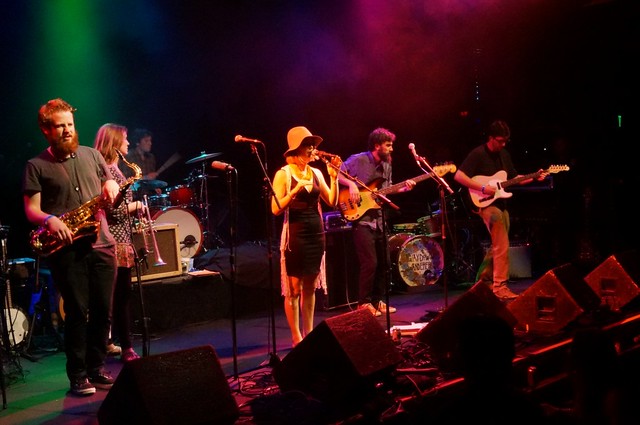
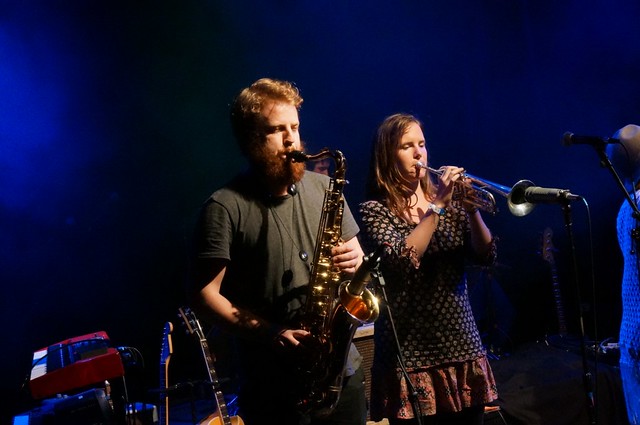
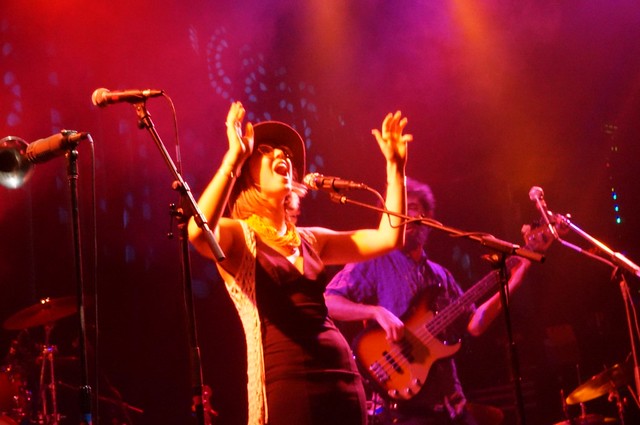
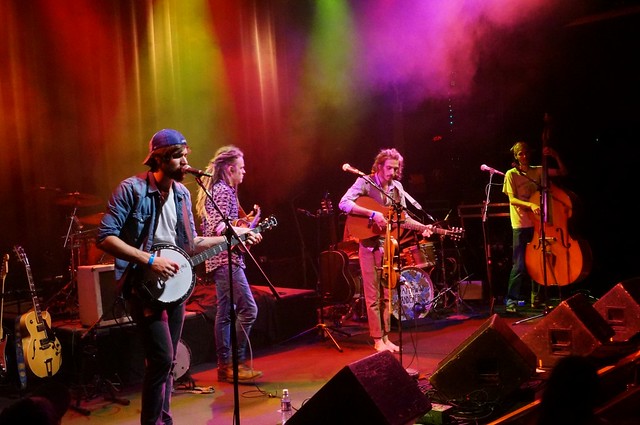
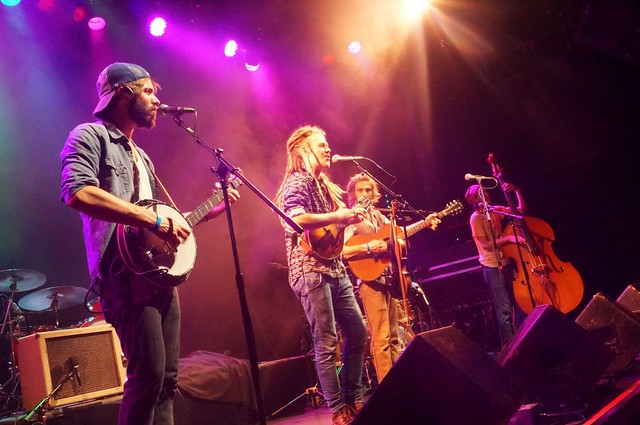
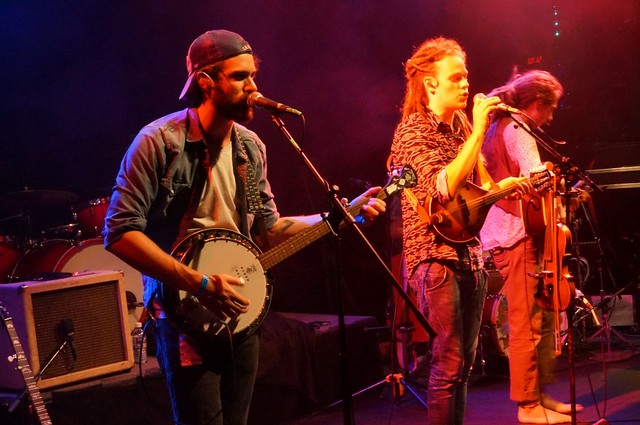
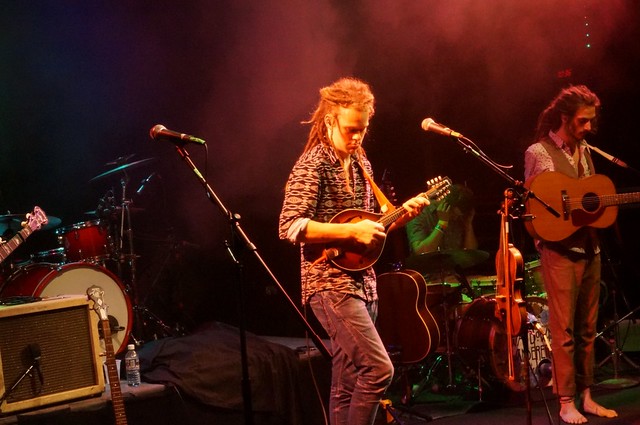
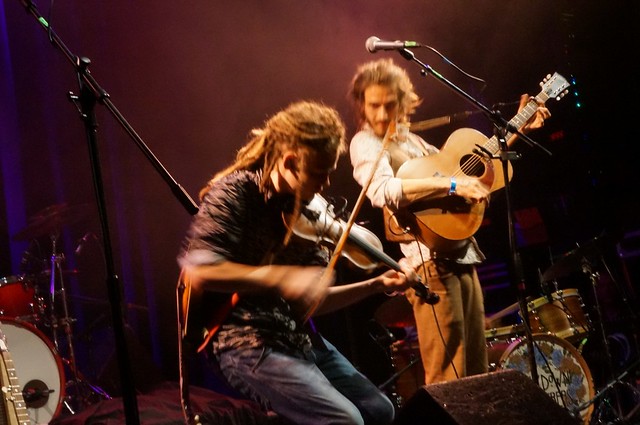
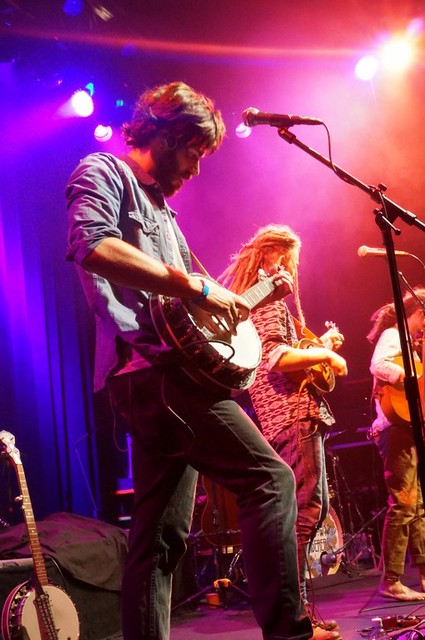

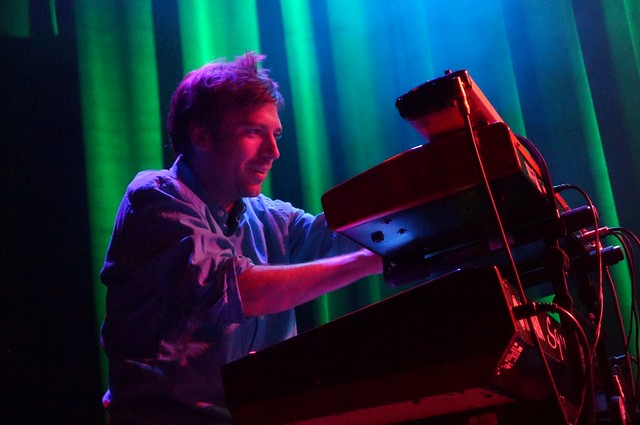
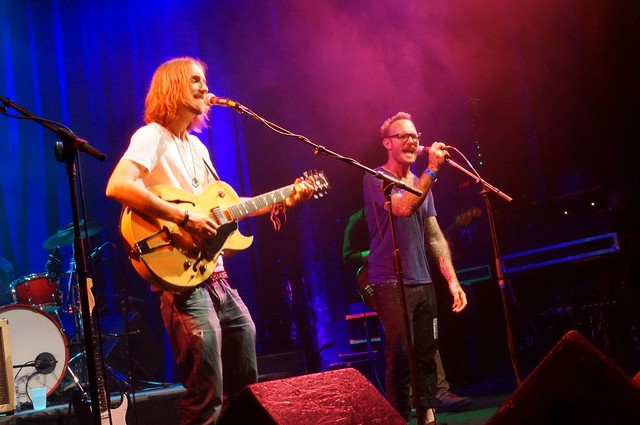
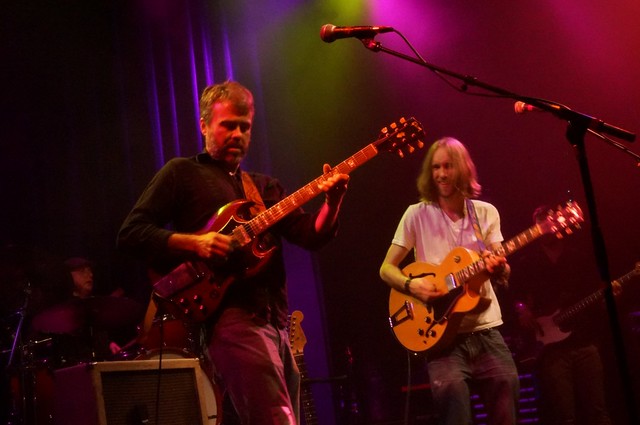
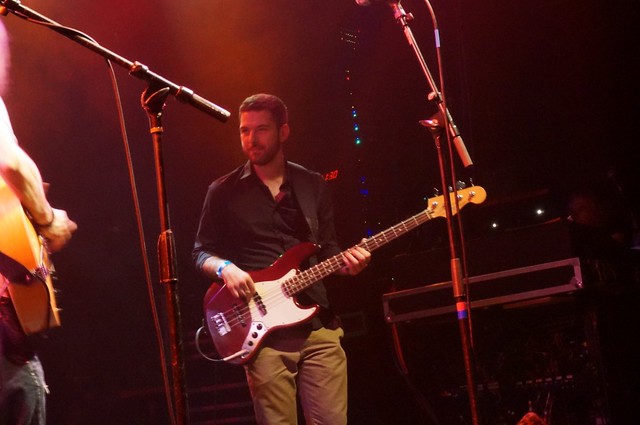
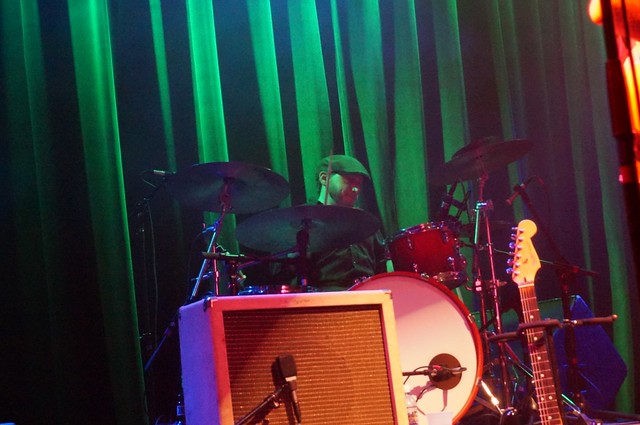
 Context is often the key to appreciation. I prefer to approach new music with as little baggage as possible, so I came to
Context is often the key to appreciation. I prefer to approach new music with as little baggage as possible, so I came to 